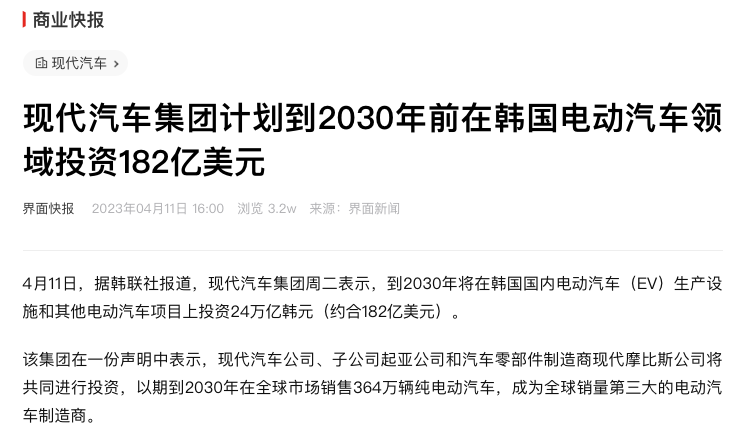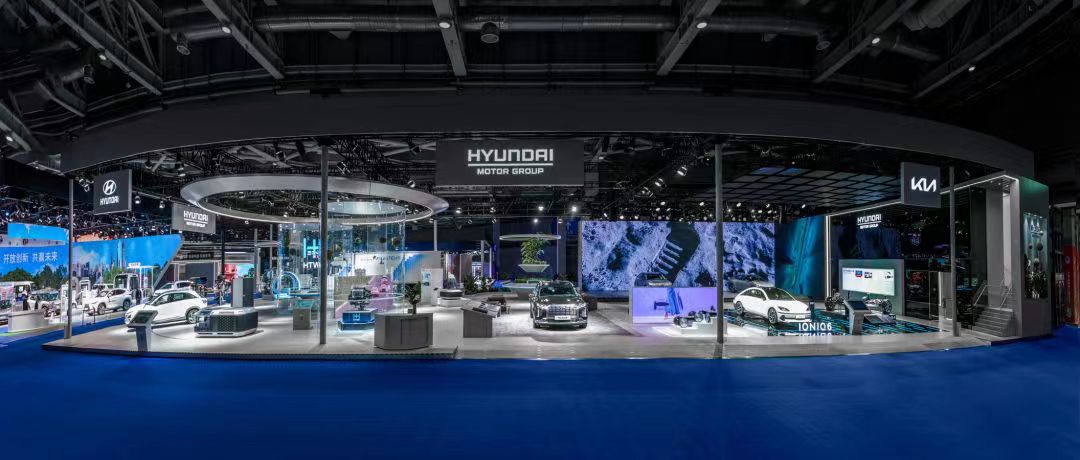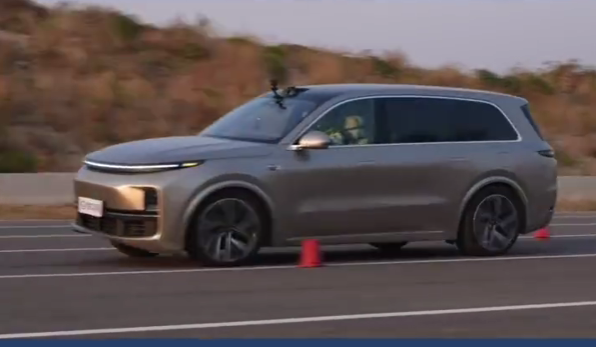In addition to Weibo, there is also WeChat
Please pay attention

WeChat public account
AutoBeta


2024-11-17 Update From: AutoBeta autobeta NAV: AutoBeta > News >
Share
AutoBeta(AutoBeta.net)04/13 Report--
According to the association data, the annual sales volume of Chinese market in 2022 was 20.542 million vehicles, down 1.9% year-on-year. According to the analysis of sales data of various countries, the sales volume of Chinese brands was 9.1766 million vehicles, accounting for 45% of the highest market share; German brands were 4.6232 million vehicles, with a share of 22%; Japanese brands were 4.3605 million vehicles, with a share of 21%; American brands were 1.7481 million vehicles, with a share of 8%; The Korean brand is 357,000 vehicles, with a share of 2%. That is to say, Chinese brands are rising strongly, while German, Japanese and Korean brands are gradually diluting their market share.
In the era of automobile electrification, German, Japanese and Korean brands want to seize more domestic market share, obviously need to accelerate more time and energy layout electric transformation.
Hyundai Motor Group plans to invest about 24 trillion won (about 18.2 billion US dollars) by 2030 to increase the output of electric vehicles and strive to become one of the world's top three electric vehicle manufacturers. The investment will be used to expand electric vehicle production lines, develop parts and related technologies, and build electric vehicle infrastructure, which will increase Hyundai Motor Group's electric vehicle production in South Korea to 1.51 million units, accounting for about 40% of the estimated global electric vehicle production of 3.64 million units.

To date, Hyundai Motor Group brands include Hyundai Motor, Kia Motors, luxury car brand Denise and parts and service subsidiary Hyundai Mobis. According to the plan, Hyundai Motor Group brand electric vehicles are expected to reach 31 models by then, including Hyundai Motor and Janice launched 18 models, Kia launched 13 models. Among product developments, Kia plans to launch the EV9 in South Korea later this year, and Hyundai plans to launch the Ioniq 7 electric SUV model in 2024.
According to the data, Hyundai Motor Group sold 6.8482 million vehicles worldwide in 2022, ranking third in the global sales list for the first time after Toyota (10.483 million vehicles) and Volkswagen (8.481 million vehicles), becoming the world's third largest automaker.

Despite Hyundai's ambitions, Hyundai, which has little presence in the Chinese market, will have difficulty gaining a foothold in the fiercely competitive electric vehicle sector. According to the data, Hyundai sold 1.8 million vehicles in China in 2016, with a market share of about 10%, but sales shrank to 352,000 and 254,000 vehicles in 2021 and 2022, with a market share of only 1%.
According to the latest sales data from January to March this year, the production and sales of domestic new energy vehicles in the first three months were 1.65 million and 1.586 million respectively, up 27.7% and 26.2% year-on-year respectively, and the market share reached 26.1%. By contrast, the penetration rate of new energy vehicles in passenger car sales has increased from 6.2% in 2020 to 29.2% in 2022, correspondingly from 1.25 million vehicles in 2020 to 6.89 million vehicles in 2022, but although new energy vehicles maintain rapid growth, it is difficult for the overall passenger car market to maintain the same high growth, which means that new energy vehicles are gradually encroaching on the market share of traditional fuel vehicles.
For the domestic market, at present, Korean cars represented by Hyundai are not highly recognized in the domestic market, and Korean brands are slow in strategy in the field of electric vehicles, and their progress is relatively lagging behind. Korean joint venture brands are still difficult to stand alone. According to the data of China Automobile Association, the market share of Korean cars in passenger cars in China from 2019 to 2021 is 4.8%, 3.8% and 2.7% respectively, while the market share of Korean brands in 2022 is only 1.7%.

Cui Dongshu, secretary-general of the Association, pointed out that although Korean automobile enterprises do not want to give up the Chinese market subjectively, strategically speaking, they really pay far less attention to the Chinese market than to the European and American markets. Globally, the market performance of Korean cars is very good. Sales in China continue to decline, and the core problems are still concentrated on the strategic level. Compared with China's own brands, Korean car enterprises are obviously slow in the transformation of electrification, so it is difficult to turn over in the Chinese market.
Of course,"Auto Industry Concern" believes that the rapid increase in market share of new energy vehicles does not mean that there is no market for traditional fuel vehicles. As far as the current situation is concerned, traditional fuel vehicles and new energy vehicles will continue to coexist in the future, rather than replace each other. Now that China has become the world's largest and fastest-growing auto market, Hyundai wants to increase its market share, whether Hyundai, Kia or Jennysys, the top priority is to launch pure electric vehicles that can cut into domestic models and compete with many new energy independent brands to save the Chinese market.
Welcome to subscribe to the WeChat public account "Automotive Industry Focus" to get the first-hand insider information on the automotive industry and talk about things in the automotive circle. Welcome to break the news! WeChat ID autoWechat
Views: 0
*The comments in the above article only represent the author's personal views and do not represent the views and positions of this website. If you have more insights, please feel free to contribute and share.











© 2024 AutoBeta.Net Tiger Media Company. All rights reserved.